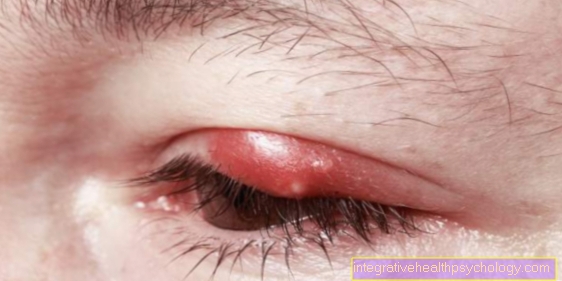Causes of Obsessive Compulsive Disorder
Obsessive-compulsive disorder cannot be explained by a causal factor. As with other diseases, obsessive-compulsive disorder can be referred to as a combination of biological and psychological factors when it comes to the search for the causes of obsessive-compulsive disorder.
Learn about the different types of Obsessive Compulsive Disorder
Biological factors
Although it is not yet exactly clear how one Obsessive-compulsive disorder come about, it can be assumed that inheritance can play an essential role.
Studies investigating obsessive-compulsive disorders have found an increased incidence of compulsions within a family in several family members. This represents an important note for the Importance of genes in research into the causes of obsessive-compulsive disorders. However, one must not necessarily assume that an obsessive-compulsive disorder always has to break out in the next generation due to hereditary predisposition. Only the probability of getting sick is higher than that of people without a genetic predisposition.
Also in neurobiology there are factors for the development of a Obsessive-compulsive disorder listed. Neurological examinations were performed on obsessive-compulsive disorder to find out how obsessive-compulsive disorder differs from healthy person.
Differences have been shown in certain brain regions of obsessive-compulsive disorder. Crucial areas of the brain that could be responsible for the obsessive-compulsive disorder include these limbic system and the frontal lobe. There seem to be errors in the messenger substances in the brain that contribute to the development of obsessive-compulsive disorder.
The messenger substance plays an important role "Serotonin“. This is a Neurotransmitters, which often plays a role in the drug treatment of obsessive-compulsive patients. The prescribed drugs mostly influence the serotonin level by preventing or slowing down the breakdown of serotonin and thus leading to a higher concentration of the Neurotransmitters contribute. (see medication)
Psychological factors
In addition to the biological aspects that can lead to the onset of an obsessive-compulsive disorder, psychological factors also play an important role in the search for the causes.
People who are regularly exposed to psychological stress in everyday life can be assumed to be more susceptible to the disease of an obsessive-compulsive disorder. Formative events in people's lives (e.g. traumatic events, see also PTSD) can also increase the likelihood of falling ill.
Emotions
As already mentioned several times, fears often arise in connection with the compulsions. It was particularly common to find insecurities, fear of making mistakes, fear of losing control and general doubts in obsessive-compulsive patients. The fear usually arises when the person concerned sees their safety or the safety of other people in danger in the situation. The compulsive behavior replaces the fears that would otherwise be strongly pronounced in the situations. Tracking down the fears and taking them back from those affected is an important point in the treatment of obsessive-compulsive disorder.
Learning theoretical factors
Learning theory sees obsessive-compulsive disorder as the learned connection between compulsions and fears. It is assumed that people with obsessive-compulsive disorder try to cover up their fears or to live with the fears through their behavior or the trains of thought.
The compulsive behavior serves as security, because through repeated practice the person learns again and again that there will be no bad consequences for this behavior. Because of this safety (compulsive) behavior, fear no longer occurs in the first place.

























.jpg)



